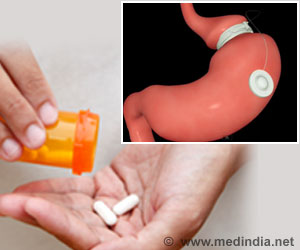Alternating positions between standing and sitting at office may help you to achieve your weight goal, a new study has found.

‘Sit-stand desks are an easy way to boost energy expenditure that fits into office culture. By combining the act of standing with other casual activities one can achieve weight control.’





If an individual were to stand for half-an-hour then they could burn 5.5 times more calories than they would do sitting for that entire hour. Standing for the full hour could burn an extra 8.2 calories. Switching evenly between the two position over the course of an eight-hour day -- four hours sitting and four hours standing -- could result in an energy expenditure of as much as 56.9 calories for men and 48.3 calories for women.
The researchers believe that regular activity of sit-stand desks could be one such exercise that would help office workers to maintain their weight.
Assistant Professor, University of Pittsburgh, Bethany Barone Gibbs in a statement said: "Sit-stand desks are an easy way to boost energy expenditure that fits into office culture. By combining the act of standing with other casual activities you can achieve and aid in weight control."
For the study, 18 participants were involved -- nine men and nine women, aged between 22-57 who performed standardised deskwork at different positions for three separate one-hour sessions: 60 minutes sitting, 60 minutes standing, and 60 minutes spent alternating between the two position.
Advertisement
"Our findings add to a growing field of research that shows the benefits of sit-stand desks -- including increase in productivity and energy, while reducing lower back pain, blood sugar, and potential blood pressure," Gibbs added.
Advertisement










